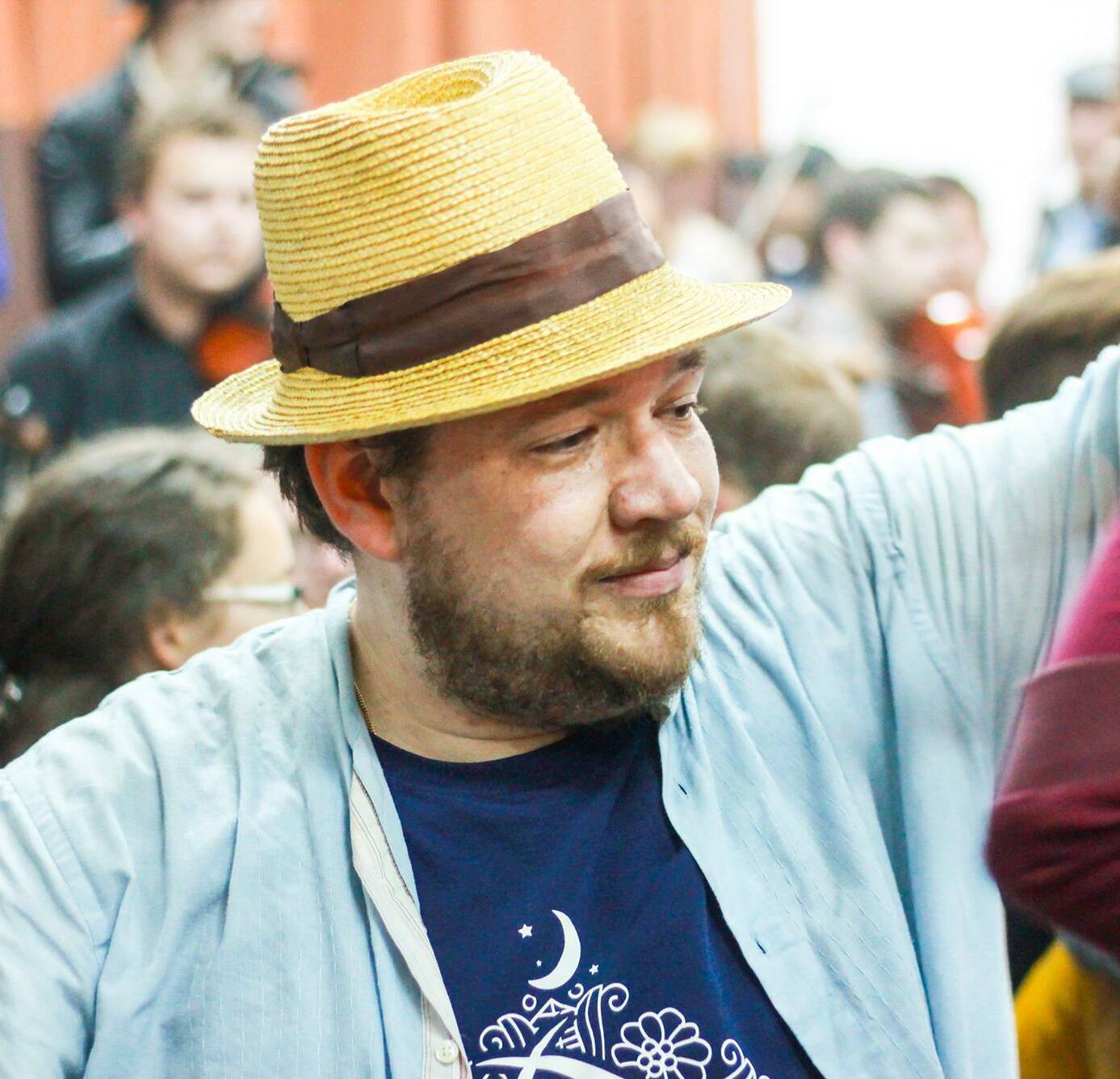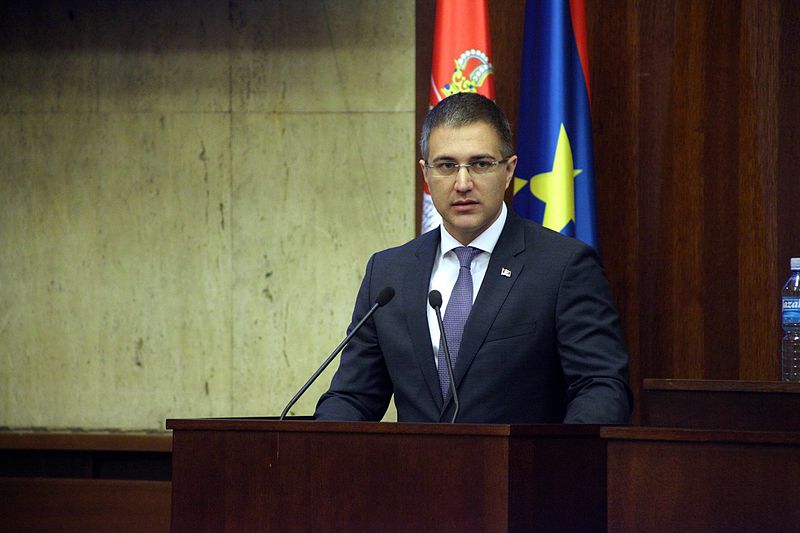Romania – Since Klaus Iohannis’s surprisingly fast rise to power in 2014, his detractors have regularly used the “Nazi” card against him. In most cases, this has been done in a stupid way: ignoring the word’s actual definition, and instead simply making a cruel reference to Iohannis’s ethnic background.
This is likely based on the fact that Iohannis is part of Transylvania’s “Saxons” – a German speaking minority in the multi-ethnic country of Romania. While Saxons often adopted Hitler’s ideology in the 1930s and during the second world war, however, Iohannis clearly cannot be held responsible for these family ties. While it is true thatsome of his words contain a certain aftertaste of antisemitism, that attitude is so widely spread in Romania that it should not lead to any meaningful conclusions about Iohannis’s alleged prejudices – and even less so, imply that they might arise simply because of his family history.
Nevertheless, it can be observed that there is a growing affinity between Klaus Iohannis’s political discourse and topics popular in the ideology of Nazi Germany. It seems however, that Iohannis himself is not aware of these affinities, considering his lack of historical and philosophical knowledge.
Brief context
Since the campaign that led to his first election, Klaus Iohannis – followed by almost the entire Romanian “right”– has systematically emptied his electoral discourse of anything political.
In Hungary, the FIDESZ party in power presents itself as “right wing” or “conservative” (sometimes adding “illiberal” since 2015, for the connoisseurs). Whether these tags are appropriate or not, they do clearly locate the ruling party’s ideology on the spectrum of ideas. This is an approach mirrored by other parties, with FIDESZ’s main opposition usually called – and often calling itself – “left wing” (or, more and more commonly, “greens” to some), despite being in reality Macron-type liberal.
In Romania, following the failure of his 2014 campaign accusing the “left” of harbouring malfeasant political figures, Klaus Iohannis changed his approach. Instead, he decided to make his “socio-democrat”(actually populist) opponents look like the “party of corruption”, while repositioning his own side (de facto Macron type liberals) from being considered the Romanian “right”, to being the side of the “job well done”.
This brutal replacement of politics by morals – though not unprecedented in Romania’s post-1989 political life – can today be observed in two phenomena:
- Firstly, the media tendency to reference the origin of Iohannis, to the point of unhealthy overuse. By focusing on his territorially Transylvanian, ethnically German identity, this behaviour sets a symbolic, geo-biological hierarchy of Romania’s population: the hard-working – and therefore rich and well-disciplined-Transylvanians in the North-west, and the thieving, lazy, lying, obscurantist and sometimes murderous Vlachs and Moldavians in the South-east, outside of the Carpathian Arch. This discourse convinced a lot of voters in Transylvania’s Hungarian minority to vote for Iohannis in 2014, and even (to a lesser extent) in 2019. Ironically, Klaus Iohannis turned out to be the most anti-Hungarian president of Romania’s constitutional history – communist era included – showing himself to be, first and foremost, a puppet of Romania’s deep state, which is itself in allegiance with the Empire of the West and therefore opposes Orbán’s desire for any kind Hungarian independence.
- Secondly, it can also be observed that there has been a more and more biopolitical colouration of that moralism. Iohannis’s Romania became the “clean Romania”, while his socio-democrat opponents – disregarding the fact that their program has not contained anything even remotely Marxist in thirty years – became the “red plague”. In Romania’s right-friendly media, it is said that supporters of the Social Democratic Party can only have voted for them because of a lack of basic intellectual skills. Every time the PSD voting results are too high for the media’s liking, the legitimacy of universal suffrage is called into question, proposing to withdraw the right to vote from either non-graduates (held to be simpletons), or the poor (selective suffrage), or the old, or all of them, since the Romanian right’s political discourse mixes them up anyway.
The Eastern European far right – which can be compared to Ukraine’s “ultras”, or in Poland amongst the opponents of the PiS– maintains a degree of“progressive” ideology which may surprise the Western observer. While hostile to democracy, anti-egalitarian, building to the idea of the “enemy from within” and so on, it at the same time favours multi-culturalism, the LGBT agenda etc. This is because it does not claim legitimacy in the light of some relatively mythical past, but in a specific, eugenic and technologist vision of the future.
This is a clearly recognisable sign of the American ideology that is ever-present in Romania, and which can be seen both through the usual channels (also active in Western Europe) and, more directly through the cancerous spreading of neo-protestant cults led by the United States.
Outcome (ongoing)
Once we understand these elements, it becomes easier to see why, in Klaus Iohannis’s Romania, the “Covid crisis” can only go wrong – though so far, everything has happened much the same way as it has everywhere else: the Romanian government– surprised by a largely unknown threat thanks to its own guilty lack of awareness, exaggerated by the media reports of the Chinese government’s “crisis communication” – overreacts. Like almost everywhere else in Europe, it lacks the means to take technical action, thanks to the neo-liberal looting of the last decades. Therefore, it finds itself faced with a technically unconvincing yet spectacular solution – the same madness suggested to Boris Johnson by the spin-doctor Neil Ferguson and quickly imitated by Macron: lockdown.
While this is familiar action to those viewing from France, Italy, Switzerland or even Hungary, the “Covid ideology” fits so perfectly within the Iohannis regime that it could lead to its downfall.
I have mentioned elsewhere the drama’s first act, namely the quick transformation from a (more formal than real) democracy into a military dictatorship, which took place in March-April 2020 thanks to the weight of the Romanian deep state. I have also mentioned their (European record-setting) hefty fines, given by the truckload for every minor violation of absurd and liberticidal lockdown rules. These fines quickly became one of the primary tax revenues of the exsanguinated Romanian state.
However, on May 6th, the Romanian Constitutional Court declared these fines illegal as their enacting decree did not sufficiently specify the conditions for recognising a misdemeanour, thus leading to an arbitrary window of opportunity for their execution by the police. French friends, take note…
Without any further delay, on May 7th, Klaus Iohannis dedicated a television address to commenting on this decision, and on the country’s situation as a whole. Utterly mixing crisis communication and campaign speech, he pointed the finger specifically at two enemies of the “clean Romania” that he believes himself to embody: the PSD, and a judicial system that he accuses of being its secret accomplice (despite the fact that the same judicial system had severely punished the PSD, and its then-leader Liviu Dragnea, who is still in prison today).
Prior to this, Iohannis had already accused the PSD of wanting to “sell Transylvania to the Hungarians” on April 29th, without any grounds whatsoever. Even though the PSD – led by Iohannis’ sidekick Ludovic Orban – is in charge of their coalition government, and disregarding the fact that the PSD had granted exceptional powers to the government in parliament at the beginning of the “sanitary crisis”. On May 7th, he placed both the PSD and Covid-19 on the same level, there by giving the biopolitical rhetoric of the ruling liberal far right in Romania its final, perfect and definitive form. The dangerous metaphor of the “red plague” has become a rather more real hallucination.
So let’s examine the impact of these two disasters on Romanian society:
Covid-19’s official numbers show 888 deaths in Romania, which represents 1.26 days of general mortality in two months. This figure is actually similar to post-communist Europe’s low life expectancy, especially amongst men – which I have analysed elsewhere. Nothing currently indicates that this mortality rate might grow in the future, either in actual lockdown conditions, or out of it (as clearly shown in the Belarussian and Swedish examples).
I have often mentioned in these columns the records of Liviu Dragnea’s PSD government (2016-2019) which, amongst other things, show doubled salaries in the public sector, thus slowing the exodus of Romanian doctors. As light as the pandemic toll might be, we could reasonably think that without this government, it would have been slightly heavier.
Right now, Romania seems to be threatened far more by the authoritative delusions of Klaus Iohannis and the Atlanticist far-right he embodies than by a virus that is killing significantly less Romanian people than an ordinary flu – or indeed than by the “red plague” of the relatively timid PSD. There are countless acts of violence committed by law enforcement against passers-by circulating in complete accordance with the law. Moreover, obviously intimidated doctors refuse to give certificates of attestation to the victims of those violent acts, even though it is statutorily due to them. Under the pretence of the fight against “fake news”, the regime has also closed several sites that were hostile to Klaus Iohannis, including amongst them Justițiarul, against which Iohannis hold an old rancour for having revealed one of the grim aspects of his social rise in the early 1990s: his ties to a Canadian network of child trafficking ( editor’s note: the site is now censored, making it impossible to provide a link). Online, an army of trolls (a priori belonging to the workforce of Europe’s biggest “secret” services) tracks down every sign of scepticism regarding the lockdown in order to brutally remind “perpetrators” of the suffering of parents in intensive care (except that Romania probably does not have enough beds in intensive care for all these trolls’ parents).
Conclusion (temporary)
Now, the question is to what extent the deep state of Romania is in control of the mockery of democracy ruled over by Klaus Iohannis since the Ceauşescu couple’s murder. If it is still the case that the deep state holds power, then Iohannis is probably close to his political end, with Covid-19 lighting the fuse. His exaggerated attacks against the PSD could in that case have been staged in order to boost the PSD’s popularity (they being as much controlled by the deep state as Iohannis’s PNL) who would rise to power so “everything changes so that nothing changes”.
However, if Klaus Iohannis turns out to be honest in the paranoid and eugenic delusions that he showed in his last public interventions, we should expect the worst. In that case, it would be unlikely to see him finish his mandate (perhaps even the year) as the head of Romania. He would then risk, before leaving the stage more or less brutally, leaving behind a toll from Covid-19 that is perhaps even heavier (and that’s saying something) than the lockdown’s.
—
The points of views expressed within this article are those of the author and do not necessarily reflect those of the editors.




